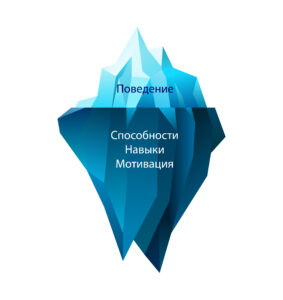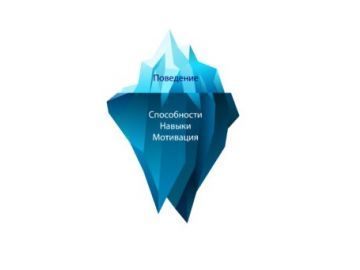Description
Technology for assessing behavioral characteristics DISC&MOTIVATORS®
Certified specialists of LLC "Robocontract" conduct a comprehensive study and coaching session based on the results of DISC testing to draw up an individual development plan (IDP). You can order testing via online chat
More about the tool
The DISC behavior assessment model is based on fundamental theoretical research of many generations. Throughout history
Humanity, scientists have observed similarities in the behavior of people and tried to classify them. With the advent of statistics and computers, the technology of fast and reliable diagnostics appeared. Success Insights® DISC Personality Indicators assess a person's behavior.
Considering the personality as a whole, we can distinguish several areas:
• Behavior and emotions: how do I act? • Intelligence: What are my intellectual abilities?
• Intelligence: What are my intellectual abilities?
• Education, knowledge: what do I know?
• Abilities and skills: how developed are my personal competencies?
• Values, beliefs: how do I perceive the surrounding reality and what motivates me?
Human behavior is the "visible segment" of a person's personality. It manifests itself in everything: how a person interacts with other people, how he makes decisions, how he organizes his work, how he manages his subordinates. Visible behavior reveals what results from our values, beliefs, abilities.
Awareness of our features helps us to understand ourselves, our strengths and limitations. Helps to understand and accept others with THEIR strengths and weaknesses and to adapt our behavior to the behavior of others in such a way as to ensure cooperation, mutual understanding, personal success in the long run, since our success and career largely depend on how we interact with people.
The founder of the DISC theory is Dr. William Moulton Marston. Developing Jung's ideas, William Marston published in 1928 the book Natural Emotions of People, in which he theoretically substantiated the classification of human behavior into four functions: Dominance (D), Impact (I), Constancy (S), Compliance (C).
Bill Bonstetter, founder of Target Training International, Ltd. (TTI) has been creatively developing the theory of DISC for twenty years. Continuing intensive research into the theory and practice of DISC, TTI has become the undisputed leader in the development of SUCCESS INSIGHTS - DISC tools. LLC "Robocontract" is the official distributor of TriMetrix Solutions® (representative of the American company TTI Success Insights® in Russia).
As a result of many years of research, which was constantly accompanied by testing and verification of the results, a group of scientists led by B. Bonnstetter expanded the number of possible combinations of the main behavioral factors to 60 and described in detail the behavioral characteristics for each combination.
According to the DISC theory, people are divided into four types depending on how they react to problems and difficulties, how they influence others, how they react to changes, how they follow the rules. The main four types are usually denoted in Latin letters, from which the abbreviation DISC is formed. In addition, the model "SUCCESS INSIGHTS - DISC" designates their "colors" - Red, Yellow, Green, Blue.
Distinctive Features of DISC Behavioral Types
 (D) Domination
(D) Domination
How does a person react to problems and difficulties?
People whose behavior belongs to this type prefer to act and make decisions. They are quick to respond and focus on the most important and urgent issues at the moment. As a rule, they say what they think, sometimes in a very authoritarian manner. People of this type are energetic by nature and tend to control the situation. They are very demanding and willingly take on difficult tasks in order to test themselves, to demonstrate their strengths in practice.
(I) Influence
How does a person interact and influence others?
People belonging to this type are cheerful and full of optimism. They love meeting new people, are creative and strive to make their dreams come true. They like to talk "for life" before getting down to business. In the course of a conversation, such a person can jump from one subject to another without any apparent logical connection and sometimes gives the impression of a superficial person. The solutions he proposes are often original, although at the same time they can be difficult to implement.
 (S) Permanence
(S) Permanence
How does a person react to change?
People of this type have a great need for reliability and stability. They pay great attention to relationships between people. They are distinguished by the ability to establish good relationships with others. In the process of interaction and communication with colleagues, they show tact, attention and cordiality. They perfectly control the process of execution of the decisions made, you can always rely on them.
(C) Conformity
How does one follow the rules?
A person of this type always carefully analyzes every detail of the issue under discussion before making a final decision. He acts in accordance with a detailed and well-thought-out plan. He is often a recognized expert in his field. He knows every detail and can answer any question regarding his professional area. However, he often gives the impression of a cold person, devoid of emotions, because he does not seek personal contact.
MOTIVATORS
What is motivation analysis?
Motivation is an internal force that leads to success when properly channeled.
Why do people sell, manage, consult, serve clients in this way and not otherwise? What makes them enthusiastic: a satisfied customer, a big contract, solving a complex problem? What can you do to channel their enthusiasm in the right direction, revealing their unique talents?
Motivation analysis provides answers to these questions.
Just as the Behavioral Diagnostics (DISC) helps us understand how people will behave in the workplace, our Personal Attitudes, Interests & Values (PIAV) Diagnostics shows why they behave the way they do.
The TTI Success Insights motivator diagnostic assesses the relative severity of six basic worldview types (or motivators - life values):
• theoretical - the search for truth
• utilitarian - money and everything useful; return on investment
• aesthetic - form and harmony
• social — sincere concern for people; helping others
• individualistic - personal power, power and recognition
• traditional - a system of rules for everyday life
Determining the values that guide the actions of individuals, teams and organizations allows you to:
• avoid conflicts,
• reveal the talents of employees,
• increase efficiency and productivity,
• focus the work of team members on achieving common goals,
• improve the company's motivation system.
The benefits are clear: reduced employee turnover, huge cost savings, and a sense of job satisfaction and engagement that your employees and partners will experience.
The cost of testing for 1 participant:
Price on request
- Full version of the report 45 pages + coaching session on the results of 1 hour
- Full version of the report 45 pages
- Brief version of the report 17 pages














